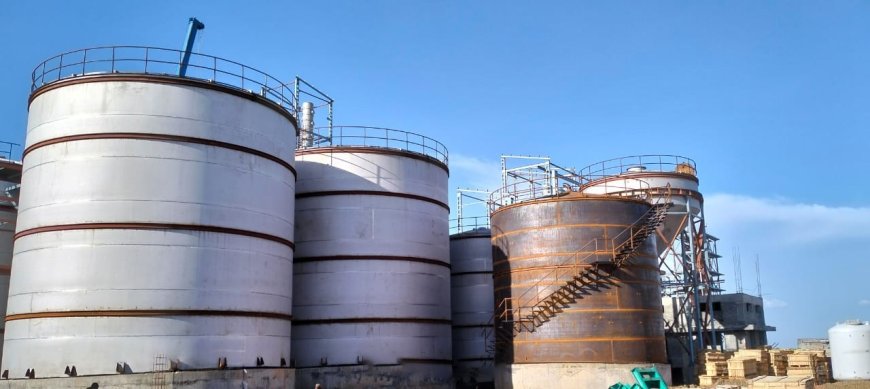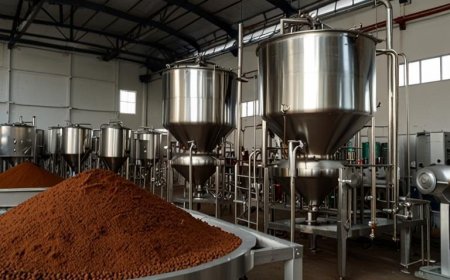Transformer Oil Production Cost Analysis - Setup Details, and Machinery Requirement
Transformer oil, also known as insulating oil, is a highly refined mineral oil or synthetic compound used in electrical transformers for its insulating and cooling properties.

Transformer oil, also known as insulating oil, is a highly refined mineral oil or synthetic compound used in electrical transformers for its insulating and cooling properties. It serves two primary functions: to insulate internal transformer components and to dissipate heat generated during operation. Transformer oil helps prevent electrical discharges and arcing while protecting winding insulation from oxidation and moisture. It possesses high dielectric strength, chemical stability, and thermal conductivity, making it essential in power distribution systems, including switchgears, circuit breakers, and capacitors. The oils stability under extreme electrical and thermal stress ensures prolonged transformer life and safe, efficient operation.
The transformer oil industry is undergoing significant transformation, driven by the rising demand for energy and the rapid expansion of power infrastructure worldwide. With increasing electrification in developing economies, particularly in Asia-Pacific and Africa, the need for reliable power transmission and distribution systems is fueling the demand for transformers, thereby boosting the transformer oil market. Urbanization and industrialization continue to place strain on existing grids, prompting upgrades and expansion that require high-performance insulating oils.
IMARCs new report titled Transformer Oil Production Cost Analysis 2025: Industry Trends, Plant Setup, Machinery, Raw Materials, Investment Opportunities, Cost and Revenue, provides a comprehensive roadmap for setting up a transformer oil production plant. It covers vital aspects such as raw materials, equipment, labor, utilities, and capital investment. The transformer oil production cost analysis helps stakeholders assess operational expenses and potential returns, enabling informed financial planning. This report is a valuable resource for entrepreneurs, investors, consultants, and industry professionals seeking to understand cost drivers and optimize production setup.
Key factors for setting up a transformer oil production plant:
1. Market Research
The transformer oil market is also influenced by regulatory pressures and standards. Governments and environmental agencies are tightening safety and emissions regulations, pushing manufacturers toward cleaner production processes and better oil handling systems. Aging electrical infrastructure in North America and Europe also creates opportunities for retrofitting and maintenance services, further stimulating the demand for transformer oils.
The report offers an exhaustive overview of the global transformer oil industry, including a detailed breakdown by segments and regions within the sector. It also includes in-depth analyses of prices involved, market trends and historical data and forecast.
- Market Forecast
- Price Analysis
- Market Breakup by Region
- Market Breakup by Segment
- Market Trends
Request for a Sample Report: https://www.imarcgroup.com/transformer-oil-manufacturing-plant-project-report/requestsample
2. Planning and Designing
A detailed and up-to-date business plan is indispensable for mapping out the steps to establish and operate a transformer oil production facility. This report offers in-depth details about the process flow and the various unit operations involved in a transformer oil production plant.
- Technical Tests
- Quality Assurance Criteria
- Mass Balance and Raw Material Requirements
- Unit Operations Involved
- Product Overview
3. Legal and Regulatory Compliance
Understanding and complying with the intricate framework of business laws and regulations is a vital aspect of establishing a transformer oil production facility. This requires a detailed knowledge of legal obligations, such as labor laws, environmental standards, tax policies, and industry-specific regulations.
4. Plant Requirements and Costs
The report offers a detailed location analysis, including insights into land selection, key criteria, location importance, environmental considerations, and associated costs for establishing a transformer oil production facility. It also provides information on plant layout and the factors that impact its design.
- Human Resource Requirements and Costs
- Utility Requirements and Costs
- Transportation Requirements and Costs
- Packaging Requirements and Costs
- Raw Material Requirements and Costs
- Machinery Requirements and Costs
- Plant Layout
- Land, Location and Site Development
Browse the Full Report with the Table of Contents: https://www.imarcgroup.com/transformer-oil-manufacturing-plant-project-report
5. Hiring and Training
Effective workforce planning and recruitment strategies are critical for assembling a skilled and efficient team to manage a transformer oil production plant. This process includes identifying the specific skills and qualifications needed for different roles and anticipating future staffing requirements based on production goals and business expansion.
- Developing Health and Safety Protocols
- Implementing Training Programs for Employees
- Complying with Labor Laws and Regulations
6. Supply Chain Management
Building strong partnerships with suppliers and vendors is crucial to maintaining a dependable and cost-efficient supply chain. This requires choosing partners who can reliably deliver high-quality raw materials and components at competitive rates.
- Planning Logistics and Transportation Networks
- Implementing Efficient Inventory Management Systems
7. Project Economics
This entails a thorough analysis of the costs associated with a transformer oil production plant, covering capital expenditure (CapEx), operating expenditure (OpEx), income forecasts, taxation, depreciation, liquidity, profitability, payback period, net present value (NPV), uncertainty, sensitivity assessments, etc. In addition to this, it includes an in-depth review of financial assistance options and a comprehensive list of certifications necessary for establishing the plant.
- Financial Analysis
- Profit Projections
- Taxation and Depreciation
- Revenue Projections
- Expenditure Projections
- Operating Costs
- Capital Investments
8. Marketing and Distribution Strategies:
Creating a robust marketing strategy and establishing strong brand positioning are vital for building a production plants market presence. This process includes conducting thorough market research to identify customer needs, preferences, and competitive trends.
- Identifying Distribution Channels and Sales Networks
- Leveraging Digital Marketing and E-Commerce Platforms
- Participating in Trade Shows and Industry Events
About Us: IMARC Group is a global management consulting firm that helps the worlds most ambitious changemakers to create a lasting impact. The company excel in understanding its clients business priorities and delivering tailored solutions that drive meaningful outcomes. We provide a comprehensive suite of market entry and expansion services. Our offerings include thorough market assessment, feasibility studies, company incorporation assistance, factory setup support, regulatory approvals and licensing navigation, branding, marketing and sales strategies, competitive landscape, and benchmarking analyses, pricing and cost research, and procurement research.
Contact Us:
IMARC Group
134 N 4th St. Brooklyn, NY 11249, USA
Email: sales@imarcgroup.com
Tel No:(D) +91 120 433 0800
United States: +16317911145




































